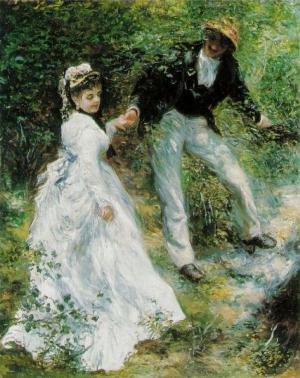How to Read Human Nature: Its Inner States and Outer Forms
Nonfiction, Religion & Spirituality, New Age, History, Fiction & Literature| Author: | William Walker Atkinson | ISBN: | 9781465588593 |
| Publisher: | Library of Alexandria | Publication: | March 8, 2015 |
| Imprint: | Language: | English |
| Author: | William Walker Atkinson |
| ISBN: | 9781465588593 |
| Publisher: | Library of Alexandria |
| Publication: | March 8, 2015 |
| Imprint: | |
| Language: | English |
Human Nature is a term most frequently used and yet but little understood. The average person knows in a general way what he and others mean when this term is employed, but very few are able to give an off-hand definition of the term or to state what in their opinion constitutes the real essence of the thought expressed by the familiar phrase. We are of the opinion that the first step in the process of correct understanding of any subject is that of acquaintance with its principal terms, and, so, we shall begin our consideration of the subject of Human Nature by an examination of the term used to express the idea itself. "Human," of course, means "of or pertaining to man or mankind." Therefore, Human Nature means the nature of man or mankind. "Nature," in this usage, means: "The natural disposition of mind of any person; temper; personal character; individual constitution; the peculiar mental characteristics and attributes which serve to distinguish one person from another." Thus we see that the essence of the nature of men, or of a particular human being, is the mind, the mental qualities, characteristics, properties and attributes. Human Nature is then a phase of psychology and subject to the laws, principles and methods of study, examination and consideration of that particular branch of science. But while the general subject of psychology includes the consideration of the inner workings of the mind, the processes of thought, the nature of feeling, and the operation of the will, the special subject of Human Nature is concerned only with the question of character, disposition, temperament, personal attributes, etc., of the individuals making up the race of man. Psychology is general—Human Nature is particular. Psychology is more or less abstract—Human Nature is concrete. Psychology deals with laws, causes and principles—Human Nature deals with effects, manifestations, and expressions.
Human Nature is a term most frequently used and yet but little understood. The average person knows in a general way what he and others mean when this term is employed, but very few are able to give an off-hand definition of the term or to state what in their opinion constitutes the real essence of the thought expressed by the familiar phrase. We are of the opinion that the first step in the process of correct understanding of any subject is that of acquaintance with its principal terms, and, so, we shall begin our consideration of the subject of Human Nature by an examination of the term used to express the idea itself. "Human," of course, means "of or pertaining to man or mankind." Therefore, Human Nature means the nature of man or mankind. "Nature," in this usage, means: "The natural disposition of mind of any person; temper; personal character; individual constitution; the peculiar mental characteristics and attributes which serve to distinguish one person from another." Thus we see that the essence of the nature of men, or of a particular human being, is the mind, the mental qualities, characteristics, properties and attributes. Human Nature is then a phase of psychology and subject to the laws, principles and methods of study, examination and consideration of that particular branch of science. But while the general subject of psychology includes the consideration of the inner workings of the mind, the processes of thought, the nature of feeling, and the operation of the will, the special subject of Human Nature is concerned only with the question of character, disposition, temperament, personal attributes, etc., of the individuals making up the race of man. Psychology is general—Human Nature is particular. Psychology is more or less abstract—Human Nature is concrete. Psychology deals with laws, causes and principles—Human Nature deals with effects, manifestations, and expressions.















